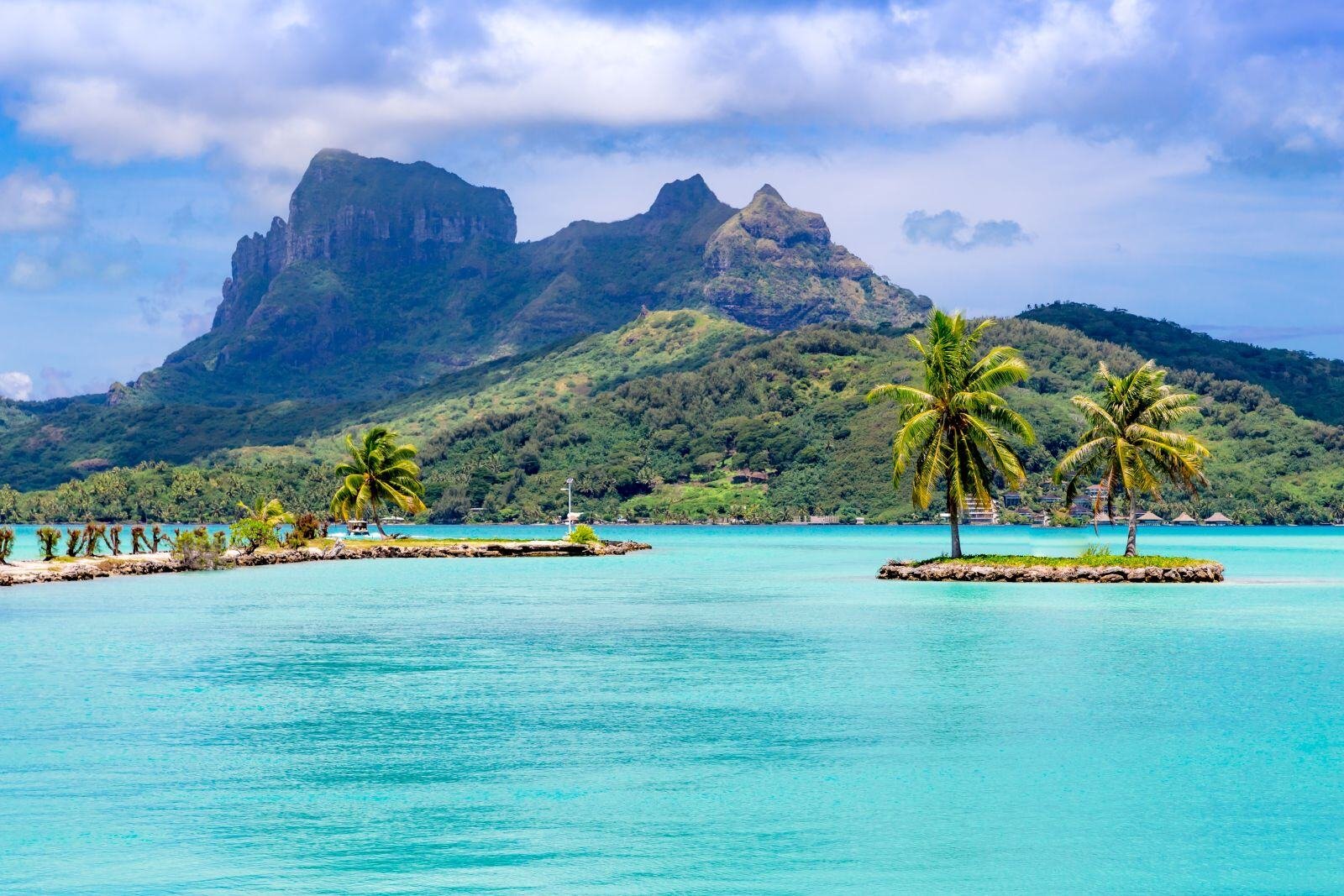Can Foreigners Buy Property In French Polynesia - A Complete Guide
If you’re thinking about buying property overseas, whether for investment, as a holiday home, or as a more permanent residence, French Polynesia is a location worth considering.
This collection of 118 islands and atolls, divided into five groups of islands, is located in the South Pacific Ocean and covers an area around the size of Europe. French Polynesia has a total land area that is close to the size of metropolitan London and Paris combined.
However, unlike those cities, just 280,000 inhabitants live here. And 205,000 of those live in the Society Islands, which includes the popular luxury holiday destinations of Tahiti, Bora Bora, and Moorea.

The islands have a storied history. The first Polynesians are thought to have been living here since around 1000 AD. Europeans first made contact in 1767 when HMS Dolphin landed on Tahiti, then the islands became a French protectorate in 1843 and in 1880, a colony. Today, the island's laws, police, and army remain under French control.
One of the main attractions of this French-governed archipelago is its natural beauty, with gorgeous, rugged scenery, clear waters, and an interesting culture, which mixes its European influence with Polynesian traditions. There’s also the laid-back lifestyle, privacy, safe environment, and unique tax advantages that make the islands appealing to a wide range of people. Another plus point is that French Polynesia avoids hurricanes and typhoons and rarely experiences cyclones, as it is on the far eastern edge of the South Pacific cyclone belt.
It's no surprise then, that in recent years there has been an increase in interest in owning property in these paradise islands from overseas buyers.
In this guide, we’ll cover some of the most important things to know ahead of buying property in French Polynesia.
Check Your Eligibility
European citizens can purchase properties in French Polynesia in exactly the same way as Polynesians and French nationals. However, non-Europeans need to seek local government approval in the form of a "Certificat d'Investissement”.
Think About the Best Location for Your Needs
If you’re looking for a home with convenient access to a wide range of facilities, Moorea and Tahiti could be the best choice. Both these islands have you covered for schools, hospitals, cinemas, shopping, theatre, and a variety of restaurants. You’ll also find a range of homes to choose from here.
Bora Bora is another popular choice for overseas investors, but do keep in mind it only has a smaller hospital. If it’s ease-of-access you want, Tahiti is also home to French Polynesia’s only international airport, Fa’a’a. This airport has flights to many of the 50 airports around the islands.
If you want to buy a private island or atoll, that will be considerably more expensive. Keep in mind that these often have no infrastructure, so as an owner you would be responsible for creating this and paying for the island’s upkeep. The atoll of Nengo Nengo may appeal to jet owners as it has its own airstrip, a port and some existing buildings.
Plan your Expense
Typically, buyers must pay a one-off tax of 12% (or 7% if it is a company) of the purchase amount. The property tax in French Polynesia is 4% of the value of the construction, or if your property is a new construction, you will pay no tax for the first five years. Make sure to budget for these expenses while planning your investment. Tax rules are the same for local and international buyers.
Investment Potential
French Polynesia offers a variety of properties to suit a range of budgets and in popular tourist locations like Bora Bora and Tahiti, there is good potential for appreciation. According to JamesEdition, the average price of a home in Tahiti is around $875,000 and prices range from around $490,000 to millions of dollars.
The increasing appeal of the islands to tourists also makes rental properties an appealing option for those looking to generate income. Increased direct flights to Tahiti from locations including the US have brought in many more visitors and, in turn, benefited employment and the local economy.
The Need for a Notaire
You will need to involve a notaire (notary) to make sure your property purchase meets French Polynesian law. All buyer fees are paid to the notaire and they will help to handle the sale agreement process. People interested in buying a property need to first sign a ‘bon de visite’ to prove they have visited the property.
The next step is to sign a preliminary contract, which serves as an agreement between you and the seller. This will include details about the fees you need to pay, deadlines to show your financing, and any building permit needs. Financing options are available to overseas buyers, but you may need a larger deposit than local buyers. It’s common to expect to pay a deposit of around 10% of the property value. All transactions are completed in CFP francs, which is pegged to the euro, although properties are commonly advertised in other currencies. The property buying process can take several months to complete, so be prepared to be patient.
We hope this guide has made you feel more informed about what to expect and consider ahead of looking to buy property in French Polynesia. Whether you’re seeking a holiday home, somewhere to live, or an investment property, we hope you can turn your dream of finding the perfect property in this beautiful part of the world into reality.



